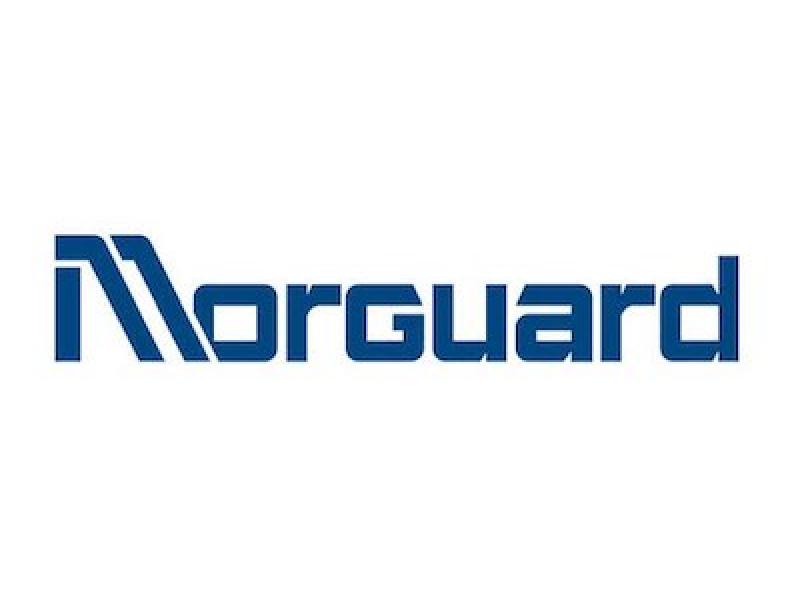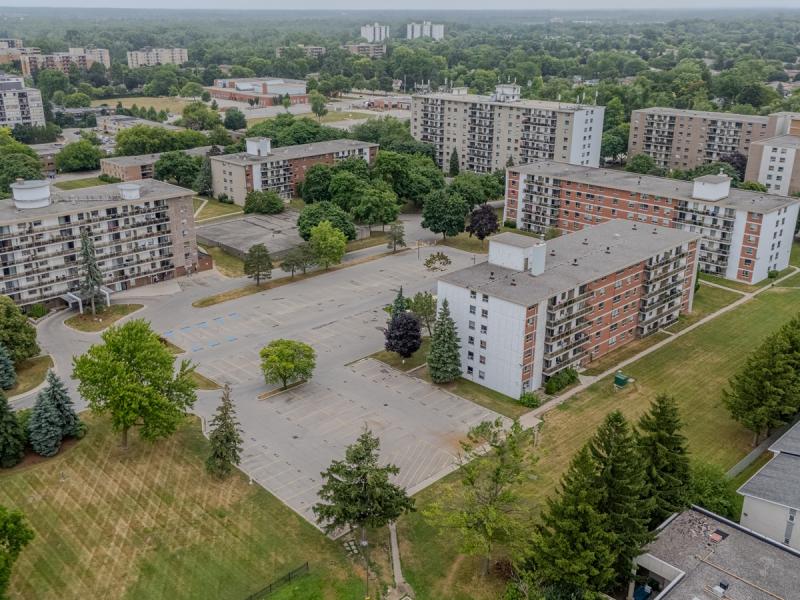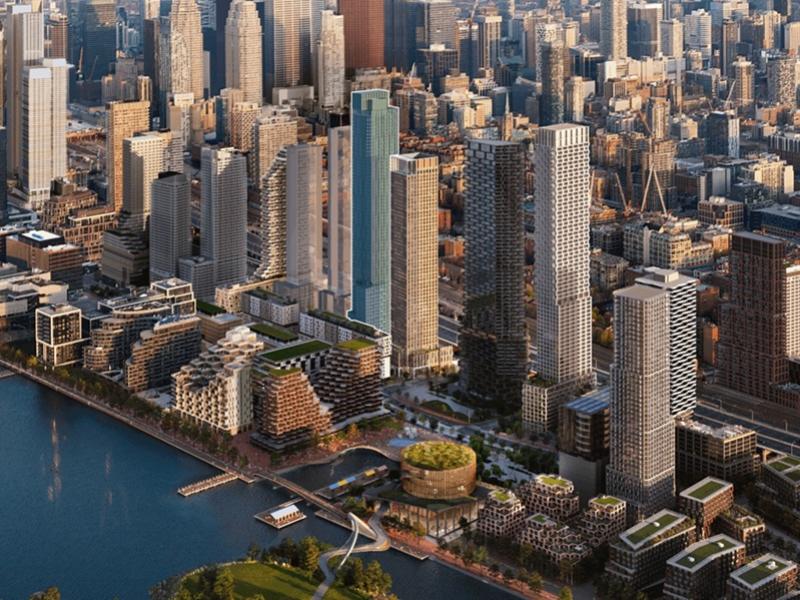
Allowing citizens to have their say in a major upcoming residential project in Montreal’s West Island helped turn what was a NIMBY development into a YIMBY (Yes in My Backyard) development.
So says Laurence Vincent, president of developer Prével, about the upcoming Village Lacey Green development to be built on the former site of Merck Frosst pharmaceutical buildings in Kirkland (known as the Charles E-Frosst land). The project will be about 500 metres west of the upcoming Fairview-Pointe-Claire REM light-rail transit station.
Vincent was speaking at a session on Solutions for creating supply in the multi-residential market: Involving citizens in your real estate projects, during the Quebec Apartment Investment Conference Feb. 28 at Montreal’s convention centre.
She noted the development that has garnered the approval of residents has more housing units than a proposal from the previous owner which the community had decisively rejected in 2016. “Citizens appropriated the project” and brought forth suggestions that improved the development, she said.
Village Green Lacey gets bigger
Village Lacey Green will include about 1,200 housing units, compared with the 750 units originally planned several years ago on the nearly 1.2 million-square-foot site on Brunswick Boulevard near Highway 40.
Initial plans in 2015 called for six condominiums towers of a maximum of 13 storeys and hundreds of townhouses at the site. Residents complained about the project’s density, building heights and the increased traffic it would bring.
That project was dropped by the city in early 2016 after more than 300 Kirkland residents signed a registry that would have triggered a referendum about the development, far more than the 125 signatures needed to set the process in motion. Plans for the referendum were dropped as Kirkland's council believed it would have gone down to defeat.
The initial project “was rejected massively,” said Kristopher Parent, director, urban planning and environment at the Town of Kirkland.
Parent said many residents feared the change the development would bring, while others were fed misinformation: City hall was getting calls from residents fearing a 40-storey building was set to rise at the site.
Prével engages community on a new plan
After that setback, Prével changed its approach and got citizens involved in the development of the revised project, starting with an information session in fall 2019 attended by more than 130 residents.
Eventually, a task force of eight residents and representatives from Prével, property owner Broccolini and Kirkland was formed. It met for several working sessions to discuss plans and collaborate on a vision for the site.
Acting in good faith, being ready to listen, transparency and communication were keys to getting citizens onside, Vincent said.
The goal was “to work in a solutions mode,” she said. It was “not whether or not we do the project, but how do we do the best possible project.”
The new project includes single-family homes, condominiums and townhouses that better integrate with the existing Lacey Green neighbourhood. Housing will suit everyone from baby boomers seeking to downsize to young families, as research by Prével found there was no supply of housing in Kirkland for these demographics.
Buffer between existing homes and tallest new buildings
Village Lacey Green will use “smart densification” to gradually increase the height of buildings on parts of the site that are furthest from existing single-family homes.
Buildings of up to 12 storeys are planned for the area closest to the REM station. The high density will allow for the construction of 47 single-family homes at the site.
There will also be six phases of townhouses with about 110 units, four phases of medium-density homes with about 200 units and six phases of multifamily buildings with up to 750 units.
About 15 per cent of the site will be green spaces, and will include five parks, a bike path, water basin, courtyard and outdoor sports areas. Green roofs will also be integrated into several buildings.
The project will abut on a wooded area in neighbouring Pointe-Claire, near the CF Fairview Pointe-Claire shopping mall, that residents are seeking to preserve but that developer Cadillac-Fairview wants to develop.
Construction could extend over a 10-year period.
The Charles-E. Frosst site was previously home to the Merck Frosst industrial campus which included R&D, drug manufacturing and offices, with more than 1,000 employees. It was abandoned by Merck in 2010.
Vincent said citizen involvement has improved the final plans for Village Lacey Green: “Citizens know their city better than we do.”










